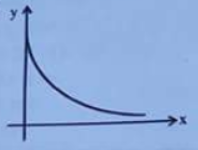Integrate the following :
(i) ∫(t−1t)2 dt
(ii)∫sin(10t−50) dt
(iii)∫e(100t+6) dt Solution in Gujrati
The correct Answer is:(i)t33−1t−2t+C
(ii)−cos(10t−50)10+C
(iii)1100e100t+6+C
Step by step video & image solution for Integrate the following : (i) int(t-(1)/(t))^(2)" dt " (ii)intsin(10t-50)" dt " (iii)inte^((100t+6))" dt " by Physics experts to help you in doubts & scoring excellent marks in Class 12 exams.
Updated on:21/07/2023Topper's Solved these Questions
- RACEBOOK - ALLEN CHAPTER - RACEEXERCISE - Basic Maths (Graphs))
28 Videos
- RACEBOOK - ALLEN CHAPTER - RACEEXERCISE - Basic Maths (Co-ordinate & Algebra)
40 Videos
- RACEBOOK - ALLEN CHAPTER - RACEEXERCISE - Basic Maths (Differentiation)
40 Videos
- NEWTONS LAWS OF MOTIONBOOK - ALLEN CHAPTER - NEWTONS LAWS OF MOTIONEXERCISE - EXERCISE-III
28 Videos
- SIMPLE HARMONIC MOTIONBOOK - ALLEN CHAPTER - SIMPLE HARMONIC MOTIONEXERCISE - Example
1 Videos
Similar Questions
Which of the following equation is best representation of following graph's?

View SolutionFind the value of :-
(i)√4
(ii)√9
(iii)√16
(iv)sqrt(36)
View SolutionFor a straight line y=43x−4. Choose correct alternate(s)
View SolutionAssertion: The driver in a vechicle moving with a constant speed on a straight road is in a non-inertial frame of referance.
Reason: A reference frame in which Newton's laws of motion are applicable is non-inertial.
View SolutionA rod with rectangular cross section oscillates about a horizontal axis passing through one of its ends and it behaves like a seconds pendulum, its length will be
View Solutionif int(e^(t)dt)/(1+t)=a then int e^(t)(dt)/((1+t)^(2))=
View Solutionint(dt)/(t+sqrt(a^(2)-t^(2)))
View SolutionEvaluate indefinite integration.
(i) x=∫dt (ii) ∫tdt (iii) x=∫(2t)dt (iv) x=∫(t2)dt
(v) x=∫(−2t3)dt
View Solution∫1t√t2−1dt
View Solutionसमाकलन करें ∫dtt2−9.(t>3)
View Solutionसमाकलन करें ∫dt81−4t2,(t<92)
View Solutionसमाकलन करें
∫(a23−t23)dt
View SolutionIntegrate the following w.r.t. respective variables: ∫ t3(t+1)2 dt
View Solution∫t2+1t4dt
View SolutionIntegrate the following function with respect to t int(4cost + t^2) dt
View Solution∫1t√t2−1dt
View Solution
